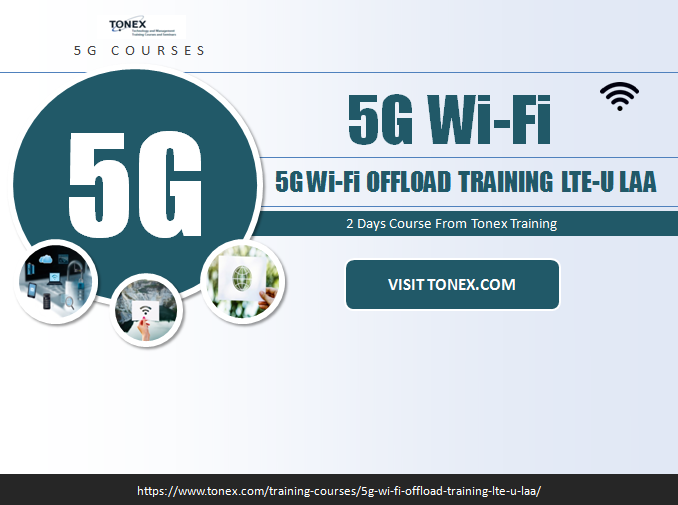Learn about:
Key concepts of 5G access and WiFi
Overview of 802.11ac, mmWave, 802.11ad, 802.11aj, 802.11ax, 802.11ay, and 802.11az
Key concepts in 5G Wi-Fi Offload , LTE-Unlicensed (LTE-U), and Licensed Assisted Access (LAA)
Rational behind the use of unlicensed spectrum to offload 5G traffic including Higher efficiency and improved management of the user experience (QoE)
Core network offloading solutions
Implementation and optimization of 5G WiFi offload
Similarities and differences between 5G Wi-Fi Offload and other solutions such as adding new cell sites and smaller cells
Principles behind integration of Wi-Fi and cellular technologies (3GPP Releases 12 , 13, LTE-A Pro, and upcoming 5G standards
5G WiFi offloading solutions and architecture
5G WiFi offloading challenges and opportunities
Principles of access methods in the joint network, security,IP mobility, network discovery and selection
Cooperative use of licensed and unlicensed 5G and Wi-Fi radios
Emerging solutions such as integration of Carrier Aggregation and Dual-Cell Connectivity concepts
Management of traffic flows between licensed LTE and Wi-Fi or unlicensed LTE carriers
Course Agenda:
Introduction to 5G and WiFi Technologies
What Is WiFi Offload?
Overview of 3GPP Offload Initiatives
Overview of 5G Offload Initiatives and Technologies
5G Wi-Fi Offload Framework
Selective 5G and WiFi Traffic Offloading Scenarios
Request more information.Visit Tonex Training website link below

Comments
Post a Comment